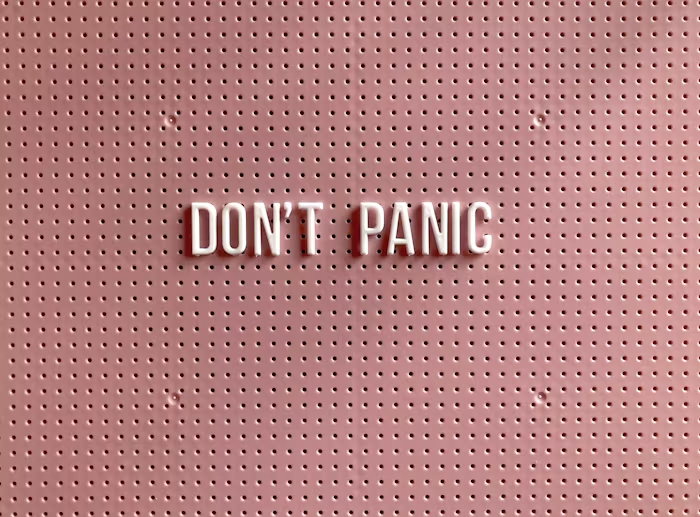In a fast-paced world where thoughts race and distractions abound, finding mental clarity can feel like an uphill battle. The practice of journaling offers a powerful yet simple solution. It’s not just about putting pen to paper — it’s a proven method to organize your thoughts, process emotions, and create space for personal growth.
This article dives into why journaling is such an effective tool for mental clarity, the benefits it brings, and how you can start your own transformative journaling practice today.
What is Mental Clarity and Why Does It Matter?
Defining Mental Clarity
Mental clarity is the state of having a focused and calm mind. It means your thoughts are organized, your emotions are balanced, and your decisions are made with confidence.
Why Mental Clarity is Essential
Without clarity, we experience:
- Overwhelm from endless to-do lists.
- Anxiety from unresolved emotions.
- Indecisiveness caused by mental clutter.
Mental clarity enables productivity, emotional well-being, and effective decision-making. Journaling serves as a bridge to achieving this state.

Why Journaling Works: The Science Behind It
Journaling isn’t just a creative outlet; it’s backed by science as a mental health booster. Here’s how it helps:
1. Externalizing Thoughts Reduces Cognitive Load
Our brains can only handle so much information at once. Journaling externalizes thoughts, creating room in your mind to focus on what truly matters.
2. Processing Emotions Lowers Stress
Writing about your emotions helps you make sense of them. Studies show that expressive writing reduces cortisol, the stress hormone, and improves overall emotional health.
3. Promotes Problem-Solving
When you write, your brain shifts into analytical mode. Journaling allows you to break down complex issues, see patterns, and discover solutions.
Benefits of Journaling for Mental Clarity
1. Declutters Your Mind
Journaling acts as a mental dumping ground, helping you clear out unnecessary thoughts. This creates space for focus and productivity.
2. Improves Emotional Regulation
Putting your feelings into words makes them more manageable. It’s a safe way to process anger, sadness, or anxiety.
3. Boosts Self-Awareness
Writing helps you uncover hidden patterns in your thinking, empowering you to make better choices and avoid self-sabotage.
4. Enhances Focus and Concentration
By clearing mental clutter, journaling sharpens your ability to concentrate on tasks and goals.
5. Strengthens Problem-Solving Skills
When faced with challenges, journaling allows you to brainstorm, organize your thoughts, and approach problems with a clear mind.
6. Increases Gratitude and Positivity
Gratitude journaling, in particular, helps shift your mindset from stress to appreciation, fostering a positive outlook.
Types of Journaling for Mental Clarity
Not all journaling styles are the same. Here are the most effective types for mental clarity:
1. Brain Dump Journaling
Write down everything that’s on your mind — no structure, no judgment. This method is ideal for clearing mental clutter quickly.
2. Reflective Journaling
Take time to reflect on your day, week, or month. Ask yourself questions like:
- What went well?
- What could I improve?
- How do I feel right now?
3. Gratitude Journaling
List things you’re grateful for each day. This practice shifts your focus from what’s wrong to what’s right.
4. Goal-Oriented Journaling
Write about your dreams, goals, and action plans. This helps align your priorities and eliminates unnecessary distractions.
5. Stream-of-Consciousness Writing
Set a timer and write whatever comes to mind without stopping. This uncovers subconscious thoughts and provides insight into your mental state.
Step-by-Step Guide to Starting a Journaling Practice
Step 1: Set Your Intention
Decide why you want to journal. Are you looking to clear your mind, process emotions, or achieve specific goals? Having a purpose keeps you motivated.
Step 2: Choose Your Tools
Select a medium that suits your style:
- Traditional notebook: Ideal for tactile learners.
- Digital apps: Great for on-the-go journaling.
- Bullet journal: Perfect for combining creativity with organization.
Step 3: Create a Routine
Consistency is key. Set aside 10–15 minutes daily, preferably in the morning or before bed, to journal.
Step 4: Find a Quiet Space
Eliminate distractions to fully engage with your thoughts. A calm environment enhances the clarity you seek.
Step 5: Use Prompts to Get Started
If you’re unsure what to write, try prompts like:
- What’s on my mind right now?
- What emotions am I feeling, and why?
- What are my top three priorities today?
Overcoming Common Barriers to Journaling
“I Don’t Know What to Write”
Start with a brain dump or use prompts to spark ideas. Remember, there’s no wrong way to journal.
“I Don’t Have Time”
Journaling doesn’t have to take hours. Even five minutes a day can make a difference.
“I’m Afraid Someone Will Read It”
Keep your journal private, or use a password-protected digital app.
Real-Life Examples of Journaling for Mental Clarity
1. A Busy Professional
Maria, a marketing executive, struggled with overwhelm. She began journaling every morning, jotting down her priorities and concerns. This helped her declutter her mind and approach her workday with focus.
2. A College Student
Jake used reflective journaling to manage his anxiety during exams. Writing about his fears and solutions made him feel more in control.
3. A Stay-at-Home Parent
Lisa, a mother of three, found clarity through gratitude journaling. Focusing on small daily blessings reduced her stress and increased her positivity.
Advanced Tips to Enhance Your Journaling Practice
1. Combine Journaling with Meditation
Write down your thoughts after a meditation session to deepen your insights.
2. Revisit Past Entries
Reviewing old journal entries shows how far you’ve come and helps identify recurring patterns.
3. Use Visualization
In your journal, describe your ideal day, week, or year. Visualization helps you clarify your goals and intentions.
4. Incorporate Doodles or Art
If words feel limiting, add sketches, symbols, or colors to express yourself creatively.
The Connection Between Journaling and Mindfulness
Journaling complements mindfulness by anchoring you in the present moment. Both practices encourage self-awareness and intentional living. When combined, they create a powerful toolkit for mental clarity.
How Journaling Boosts Long-Term Personal Growth
Over time, journaling becomes more than a daily habit — it evolves into a personal growth tool. Benefits include:
- Recognizing and breaking negative thought patterns.
- Tracking progress toward goals.
- Building a deeper understanding of yourself and your emotions.
The Role of Technology in Journaling
Digital journaling apps like Day One, Penzu, and Evernote make it easier than ever to journal. They offer:
- Organization features like tags and folders.
- Search capabilities to revisit specific topics.
- Accessibility across devices for journaling on the go.
Why Journaling is More Relevant Than Ever
In today’s digital age, our minds are bombarded with information. Journaling offers a sanctuary from this noise, helping us reconnect with our inner selves and find clarity amid chaos.
Journaling is more than a simple habit — it’s a transformative practice that can bring mental clarity, emotional balance, and personal growth. Whether you’re navigating challenges, setting goals, or simply seeking peace of mind, journaling provides the clarity you need to move forward.
Start your journaling journey today. You’ll discover that the answers you seek have been within you all along — waiting to be written down.









